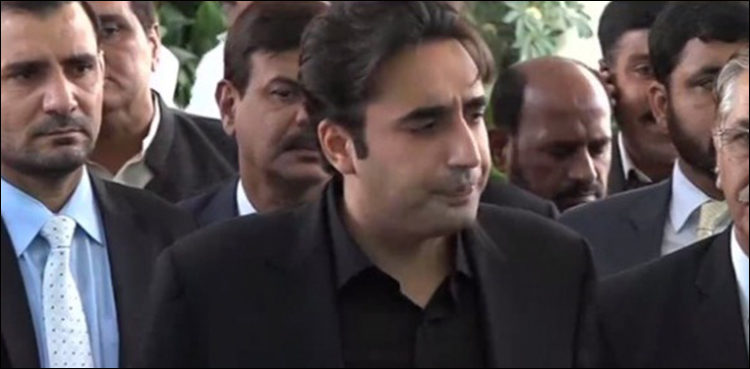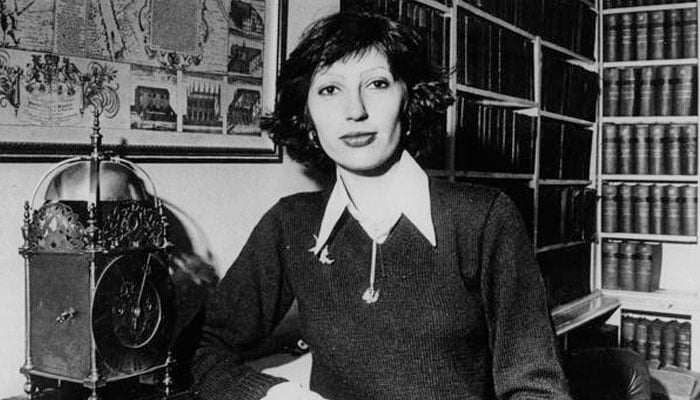Mohammed Hanif
A number of politicians, ulema of various kind and tajzia nigars have concluded that Qadianis are not a minority. What can be worse than being a minority? What happens when a minority is declared a non-minority?
We are fast running out of things that we can do to Qadianis. Most readers of this newspaper are educated enough to know that Qadianis don’t like to be called Qadianis, they refer to themselves as Ahmadis. But events of the last few weeks have proved that we are finally past that point where we had to pretend to care what they think or feel.
Forty five years ago we asked our elected parliament the same question: what should we do about the Qadianis? Our first elected parliament decided “let’s declare them kafirs!” because, for more than a century, a certain brand of ulema had been demanding that they should be declared kafir. Since then we have asked the ulema over and over, not that they wait to be asked, and they have told us that not only are Qadianis kafir but they are the worst kind of kafir — worse than Hindus, definitely much worse than Christians and even more sinister than Yahoodis. Almost all the anti-Qadiani literature, banners and slogans declare them the bud-tareen kafirs in the world.
Pakistani liberals keep saying, in weak, apologetic voices that Ahmadis are actually a minority. But the debate that emerged around Atif Mian’s appointment proved that Qadianis can’t be treated as a minority. A number of ruling and opposition party politicians, ulema of various kind and tajzia nigars have concluded that Qadianis are not a minority. May be the constitution declared them a minority, and later set out rules about how they should behave as a minority, but no sorry they are not. What can be worse than being a minority? What happens when a minority is declared a non-minority?

Rioting in Jhelum 2015. Photo by Rahat Dar
When Imran Khan’s government announced Atif Mian’s name as a member of the Economic Advisory Council (EAC), they probably thought it’s only a consultative role; they probably can get away with it. When Imran Khan had announced his name as his pick for finance minister at a public rally, he had to lean back to confirm his name. There was more noise in PTI’s own ranks than outside. If the nominee had been a Christian or Parsi or Hindu, there would still be opposition but probably there wouldn’t be the kind of menace that emerged around Atif Mian’s name. Even those most loyal to Khan were shaking their heads and shouting: what were you thinking?The discourse around Qadianis, their faith and how they practice has always been fierce when not outright murderous but Khan’s backtracking has raised it to a bizarre new level. You can’t even consult an Ahmadi on some technical issues, surely you can’t go to an Ahmadi surgeon, and God forbid if there is an Ahmadi school teacher out there. I am sure Atif Mian wouldn’t have said, first of all you all need to abandon your religion, and follow my khalifa, only then I’ll tell you how to fix your budget deficit.
Let’s not blame Imran Khan though; let’s look at ourselves.
Just before the appointment of the current army chief, a senator and a religious scholar accused him of being an Ahmadi. The army chief wasn’t Ahmadi but there is no public record of any action having been taken against the senator. It was a vile attempt to sow doubts within the highest ranks of Pakistan’s most disciplined institution and it’s punishable under any number of laws. The chief, after taking over his command, responded by releasing pictures of a mehfil-e milad held at his house. That is what the country’s most powerful man had to do to counter an accusation of being an Ahmadi. Imran Khan’s blundering retreat may not be forgivable but it’s completely understandable.
Pakistani liberals keep saying, in weak, apologetic voices that Ahmadis are actually a minority. But the debate that emerged around Atif Mian’s appointment proved that they can’t be treated as one.
Orya Maqbool Jan, tv anchor and former bureaucrat, spoke loud and clear in one of his TV programmes: I realise that they are a minority according to the constitution, but in this country there are ahl-e constitution and then there are ahl-e iman; the ahl-e iman know the Qadianis are not a minority because they don’t consider themselves a minority. They have set up a parallel shop and this can’t be tolerated, he said. Ahl-e constitution don’t stand a fighting chance when they are up against ahl-e iman.
So what should the practising Ahmadis do? In the past, citizens have been declared traitors, enemy combatants, foreign agents but never in Pakistan’s history has a declared minority been recast as something worse than a minority.
Every breath they take is a blasphemy, every time they pray silently, every sajda, every rukoo, every time they hide and read the Quran, every time they fast and break it with Rooh Afza, every time they sing a lullaby to their children that evokes Hasan and Hussain, every time they say Alhamds to your good news, every time they send you a Happy Eid Mubarak emoji, every time they grow a beard, or their daughter goes full hijabi, every time they give azan in their new born’s ear, they are committing a crime. Their very existence is perpetual blasphemy. And we all know the entire list of punishments for blasphemers, some imposed by ahl-e constitution, others by ahl-e iman.
It seems like an act of supreme mercy that we haven’t chucked them in the Arabian Sea yet or made them wear yellow stars. Although a certain Justice of the Islamabad High Court has tried.
In Atif Mian’s case there was also a blood-curdling, between-the-lines accusation: you are not even a non-minority, you are a murtad (apostate). You are given three days to think it over and then everybody knows the murtad’s punishment. And Ahl-e constitution will not decide, ahl-e iman will.
So in our own lifetime Qadianis have become from a Muslim sect to non-Muslim minority to a non-minoritity to murtads who at best can be given three days to live.
And what happens if Ahmadi soldiers die in a battle fighting for Pakistan? Can we call them martyrs? Are we allowed to praise their sacrifice? Last month, on Defence Day, the Ahmadi community took out an advertisement to commemorate these sacrifices. The newspaper pulled out the advertisement and was forced to publish an apology. We can’t show the picture of an Ahmadi soldier who died on our borders or admit his services. Not even the most powerful institution in the country can pull this off.
Forget soldiers, when was the last time you heard an Ahmadi singer or artist or poet (Obaidullah Aleem is dead so he doesn’t count). Was there any famous or at least potentially useful Ahmadi between Dr Abdus Salam and Dr Atif Mian? The lesson that Ahmadi kids are taught before they are sent off to school is: “don’t tell anyone that you are an Ahmadi”.
So now that we know what Ahmadis are not allowed to do, what is it that they are allowed to do? And what are we allowed to do with them? Can we rent a house from them? Are our children allowed to play with their children? Can we cast them in tv plays as non-Ahmadi characters? If we are lost in a new city, can we ask them for directions? Can one of them play PSL? Are they allowed on Coke Studio?
The best-selling and seminal Urdu novel of our generation is Peer-e Kamil, most of it is about the spiritual journey of an Ahmadi girl. No point guessing where this journey ends. But if it becomes a tv serial, can an Ahmadi girl play that role of the misguided Ahmadi girl?
Many Ahmadis would tell you: “Thank God we are kafirs and not Shias”. They acknowledge that Shias in Pakistan have probably suffered a lot more than they have. The fate of Ahmadis and Shias are mentioned in a speech given by one of Pakistan’s most influential thinkers, Maulana Haq Nawaz Jhangvi. Liberals who moan that they don’t live in Jinnah’s Pakistan but General Zia’s Pakistan are being characteristically optimistic. All the evidence suggests that we live in Maulana Jhangvi’s Pakistan.
When Maulana Haq Nawaz Jhangvi launched his Anjuman Sipah-e Sahaba in the mid-1980s, it initially didn’t get much traction with his old comrades. His JUI colleagues thought that by asking the state to declare Shias kafir, Maulana had gone a bit too far. In one of his early speeches Maulana said that his friends think he has gone a bit bonkers, that he wants the state to declare Shias kafir.
Maulana Jhangvi’s response: “Remember in this country there was a man called Syed Ata Ullah Shah Bukhari who for more than half a century, went from town to town demanding that the state should declare Qadianis kafir. Did anyone think it was possible? People used to say that Shah Sahib had gone mad. But look at us now.”
Yes, look at us now.
http://tns.thenews.com.pk/what-should-we-do-with-them/#.W7owuGhKiUk




